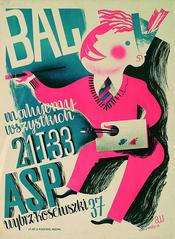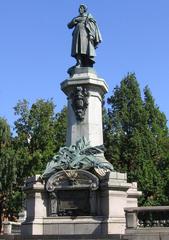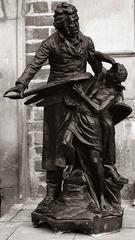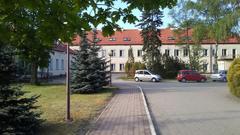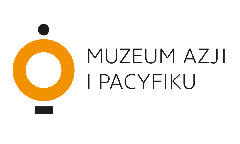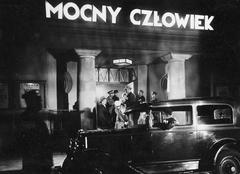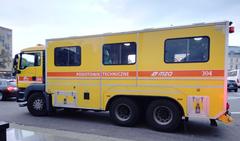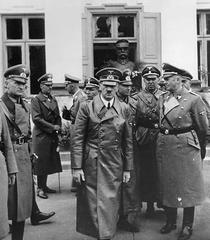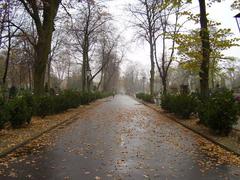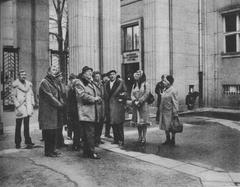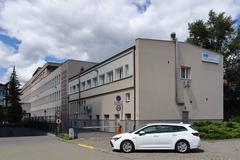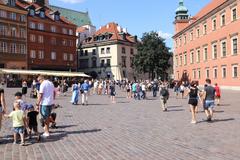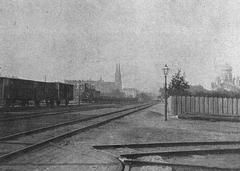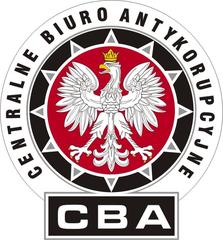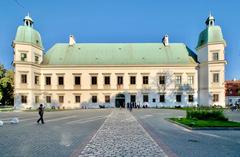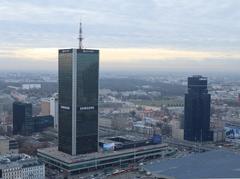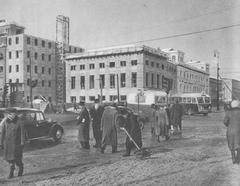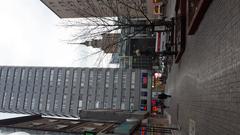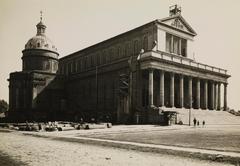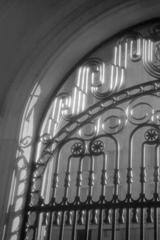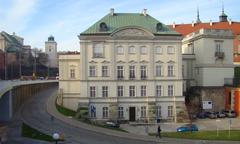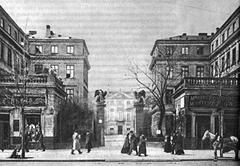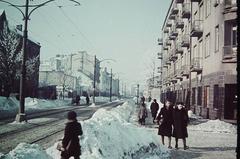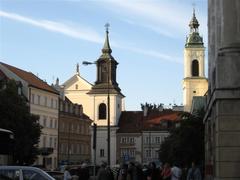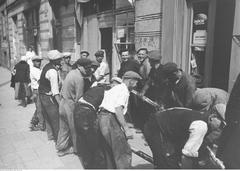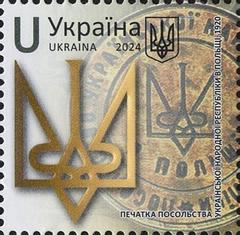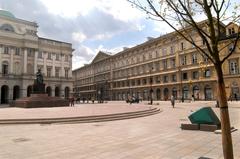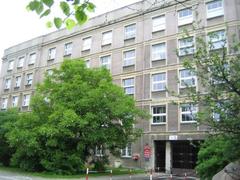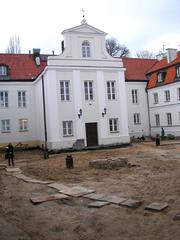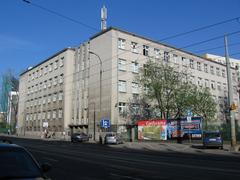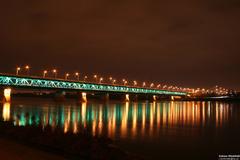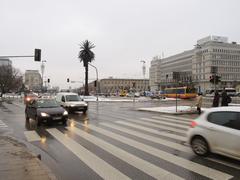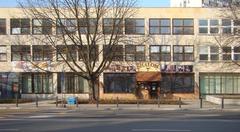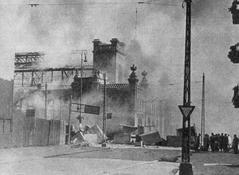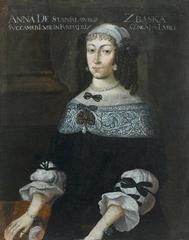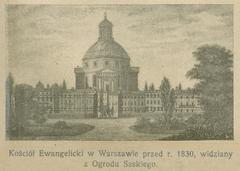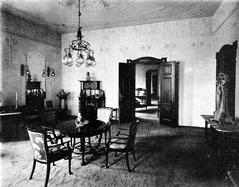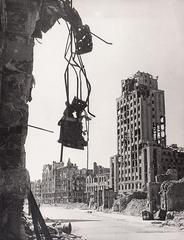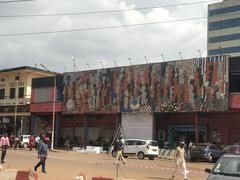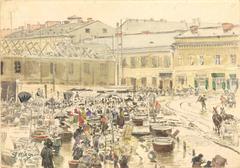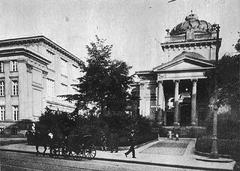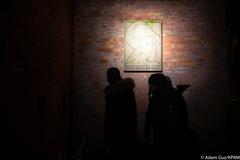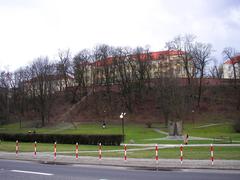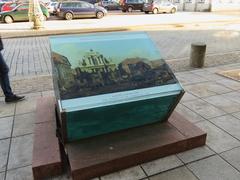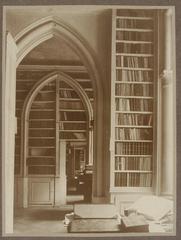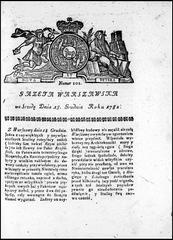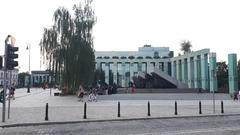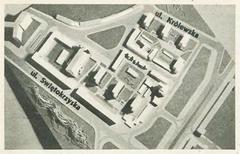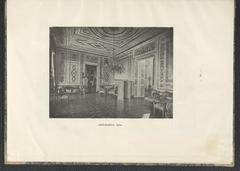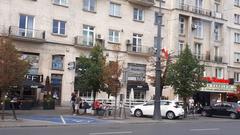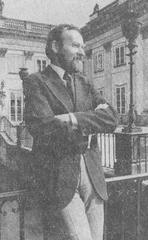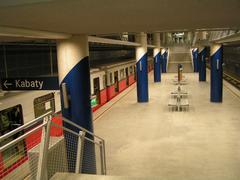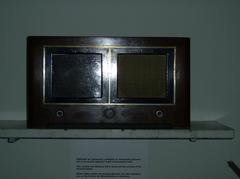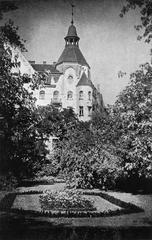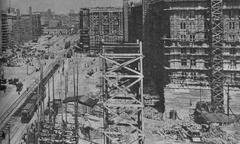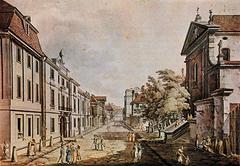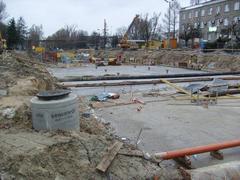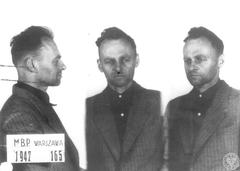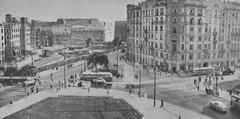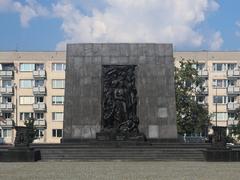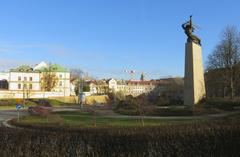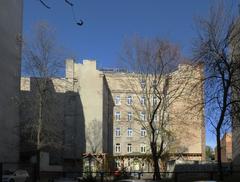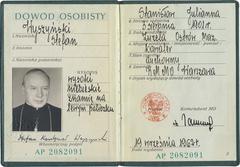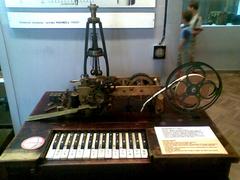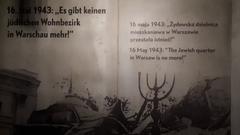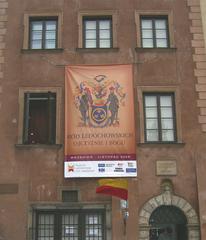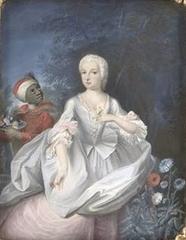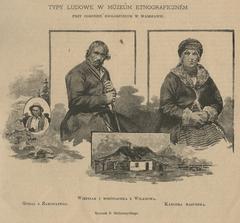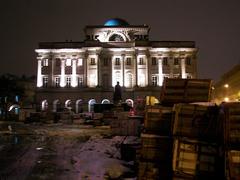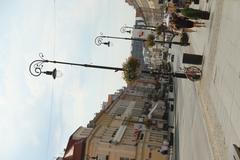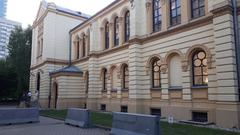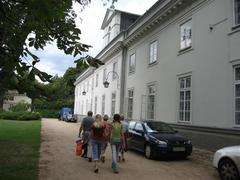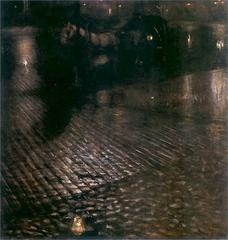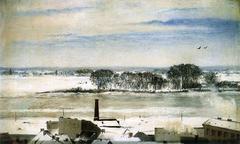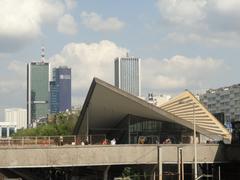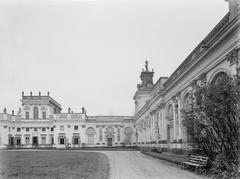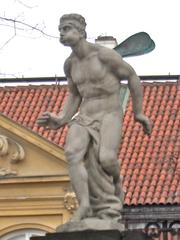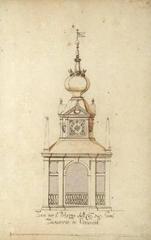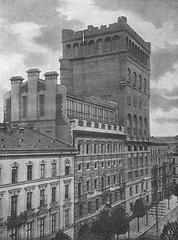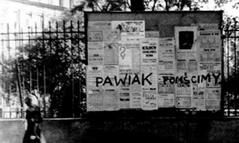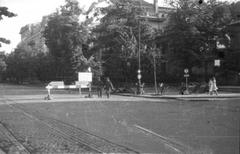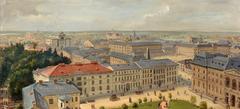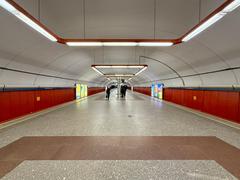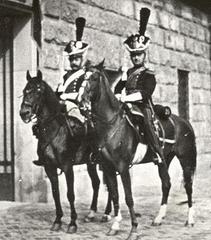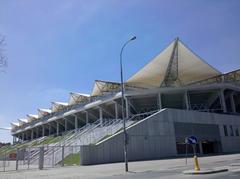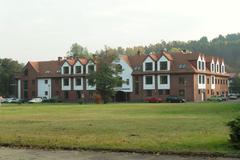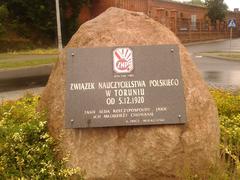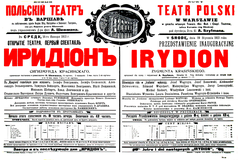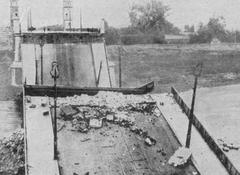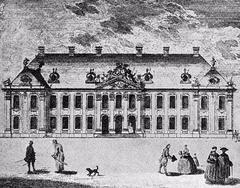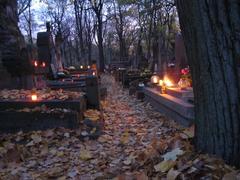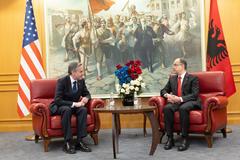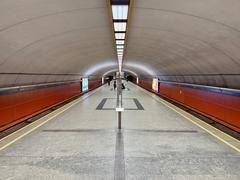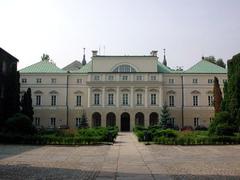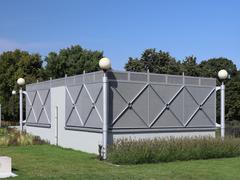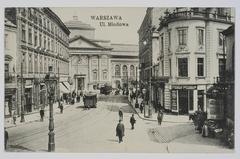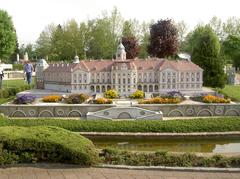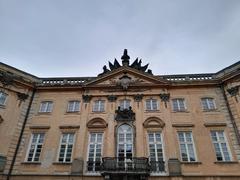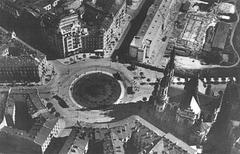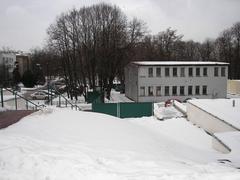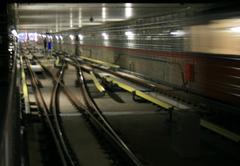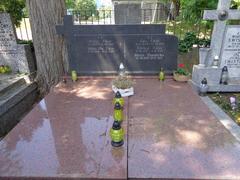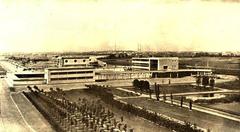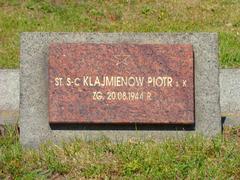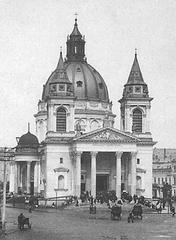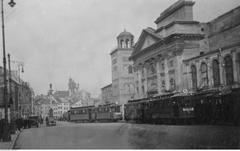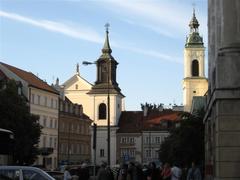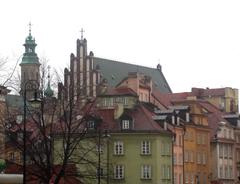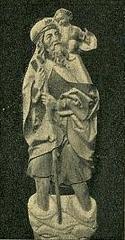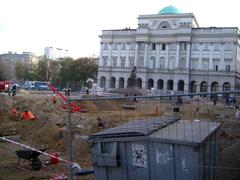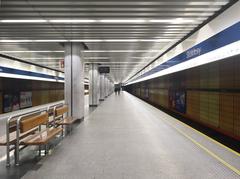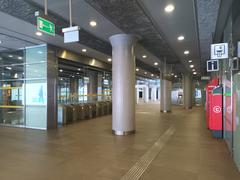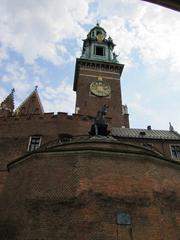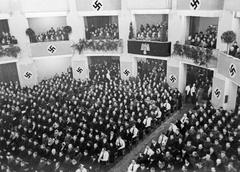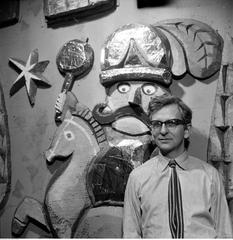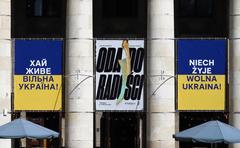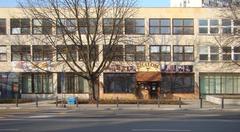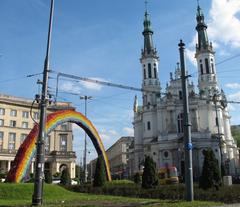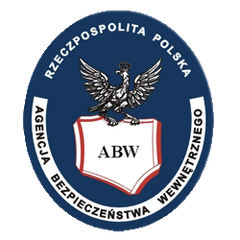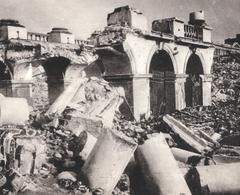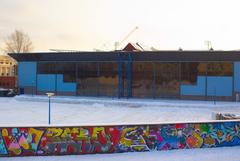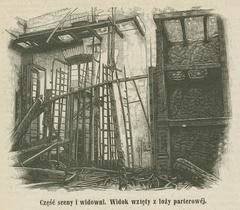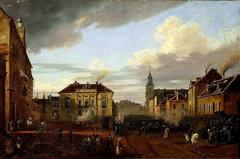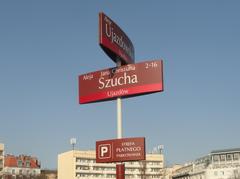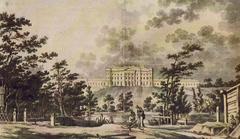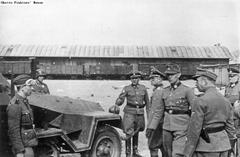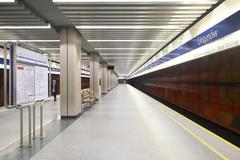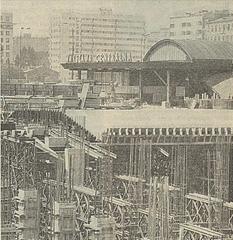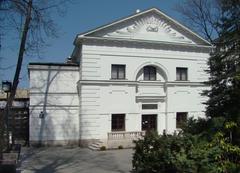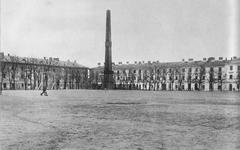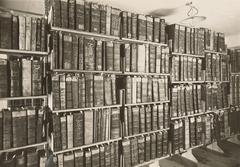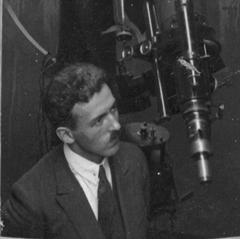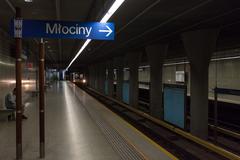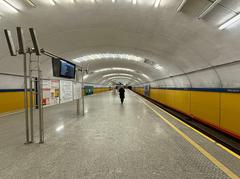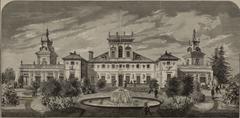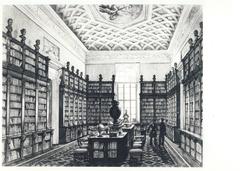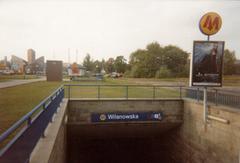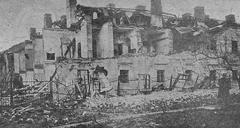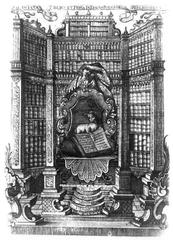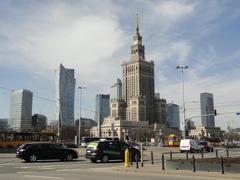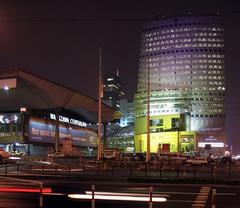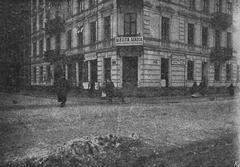
Collegium Nobilium Warsaw: Visitor’s Guide, History, and Architectural Highlights
Date: 03/07/2025
Introduction: Why Visit Collegium Nobilium?
Nestled in the heart of Warsaw’s historic Old Town, the Collegium Nobilium stands as a powerful symbol of Poland’s educational and cultural heritage. Founded in 1740 by Piarist priest Stanisław Konarski, the institution was envisioned as a progressive academy for the sons of the Polish nobility—inculcating Enlightenment-era ideals, critical thinking, and civic responsibility. Over nearly three centuries, the Collegium has evolved from its original role as an elite school to become the headquarters of the Aleksander Zelwerowicz National Academy of Dramatic Art and the home of the Teatr Collegium Nobilium, one of Poland’s most innovative theatre venues.
Surviving war, political upheaval, and near-total destruction during World War II, the meticulously reconstructed building today offers a unique blend of historical depth and contemporary artistic vibrancy. Whether you are a history buff, architecture enthusiast, theatre lover, or cultural traveler, Collegium Nobilium is a must-see landmark, inviting visitors to experience the evolution of Polish education, the beauty of 18th-century architecture, and the energy of Warsaw’s creative scene.
Official resources such as the Aleksander Zelwerowicz National Academy of Dramatic Art and Teatr Collegium Nobilium provide up-to-date schedules, ticketing, and accessibility information.
Table of Contents
- Historical Overview
- Visiting Collegium Nobilium
- Architectural Highlights
- Cultural and Educational Significance
- Unique Visitor Experiences
- FAQ
- Conclusion
- Sources
Historical Overview
Founding and Educational Mission
Established in 1740 by Stanisław Konarski, the Collegium Nobilium was created to serve as an elite secondary school for the Polish-Lithuanian nobility (GoOut). Its innovative curriculum included classical studies, mathematics, natural sciences, modern languages, and political economy—a radical departure from the conventional Latin-focused education of the era. The aim was to shape enlightened leaders who would guide the Commonwealth through reform and modernization.
The Piarist-run institution quickly became a beacon of the Polish Enlightenment, producing alumni who played prominent roles in politics, science, and culture. Its intellectual legacy influenced the establishment of the Commission of National Education in 1773, Europe’s first education ministry.
Architectural Heritage
The Collegium Nobilium’s main building, designed by royal architect Jakub Fontana, is a superb example of late Baroque and early Classicism (Theatre Architecture EU). The original campus began on Długa Street and soon moved to Miodowa Street, where the iconic palace—with its symmetrical façade, pilasters, and elegant stucco work—still stands (Alchetron).
A distinctive feature of the Collegium was its school theatre, considered a groundbreaking educational tool by Konarski. The original theatre, housed in an outhouse facing the courtyard, boasted an auditorium with boxes, balconies, and portraits of illustrious alumni. Performances were staged in Polish, French, and German, reflecting the cosmopolitan curriculum.
War Damage and Reconstruction
Like much of Warsaw, the Collegium Nobilium suffered catastrophic destruction during the Warsaw Uprising of 1944 (Alchetron). Only fragments of the original survived. Postwar reconstruction in the 1950s restored the classicistic façade and adapted the interior for modern use, while a new theatre was added in the 1990s (Wiki Gateway). Today’s Collegium Nobilium preserves the spirit and style of Jakub Fontana’s design while serving the needs of a dynamic educational and cultural institution (Theatre Academy).
Visiting Collegium Nobilium
Visiting Hours and Tickets
- Hours: The building is open Monday–Friday, 9:00 AM–5:00 PM, with theatre performances and events typically in the evenings and weekends. Check the Teatr Collegium Nobilium event calendar for current schedules.
- Tickets: Entry to the building and courtyard is often free, though tickets are required for performances. These can be purchased online or at the box office. Discounts are available for students and seniors. Guided tours are occasionally offered—book in advance via the official website.
Accessibility and Facilities
- The building is wheelchair accessible, with ramps, accessible restrooms, and a dedicated entrance for visitors with mobility needs (Akademia AT).
- The main entrance on Miodowa Street is clearly marked, and the foyer includes helpful signage.
- Cloakroom and restrooms are available for theatre patrons.
Getting There
- Address: ul. Miodowa 22/24, 00-246 Warsaw, Poland
- Public Transport: Easily reached by tram, bus, or metro (nearest station: Ratusz Arsenał, Line M1).
- Parking: Limited street parking; public transport is recommended.
- Cycling: Bicycle paths run along Miodowa Street.
Nearby Attractions
Enhance your visit by exploring nearby sites:
- Warsaw Old Town (UNESCO World Heritage Site)
- Royal Castle
- POLIN Museum of the History of Polish Jews
- Warsaw Uprising Museum and Żoliborz district parks
Architectural Highlights
- Façade: Classicistic symmetry, decorative cornices, and restrained Baroque elements.
- Main Entrance: Grand iron gate, accessible to all visitors.
- Theatre: Modern auditorium built to echo the original 18th-century design, with a two-story seating area and stage wings (Theatre Architecture EU).
- Interior: Blends historic detail with modern adaptation; accessible facilities throughout.
- Urban Context: Located on a pedestrian-friendly street in the heart of historic Warsaw, surrounded by architectural landmarks (TourHQ).
Cultural and Educational Significance
Enlightenment Legacy
The Collegium Nobilium’s educational reforms under Konarski were instrumental in shaping the Polish Enlightenment. Its focus on science, languages, and civic engagement set new standards for education in Poland and Europe (GoOut).
Contemporary Theatre and the Arts
Now the seat of the Aleksander Zelwerowicz National Academy of Dramatic Art, the Collegium continues to nurture artistic talent. The Teatr Collegium Nobilium is renowned for experimental and student-led performances, often exploring contemporary social issues. Educational programs, workshops, and public lectures reinforce its mission as a center for lifelong learning and cultural exchange.
Community Engagement
Regular performances, festivals, and cultural events invite both locals and tourists to experience the vibrancy of Warsaw’s theatre scene. Public programs, open rehearsals, and guided tours foster community involvement and make the arts accessible to a wide audience.
Unique Visitor Experiences
- Attend a Performance: Enjoy student or professional productions in a historic setting; many shows address current themes and Polish classics.
- Guided Tours: Occasionally available, offering insights into architectural and historical features—book via the official website.
- Workshops and Lectures: Engage with educational offerings for all ages.
- Photography: The façade and theatre interior are popular photo spots; photography during performances may be restricted.
FAQ
Q: What are the opening hours?
A: Monday–Friday, 9:00 AM–5:00 PM; performances typically in evenings and weekends. Check the event calendar for specifics.
Q: How do I buy tickets?
A: Online via theatre website or at the box office. Advance booking is recommended.
Q: Is the site accessible for people with disabilities?
A: Yes, with ramps, accessible restrooms, and dedicated entrances.
Q: Are tours available?
A: Guided tours can be arranged in advance; contact the theatre for details.
Q: Can I take photos inside?
A: Photography is allowed in public areas; restrictions may apply during performances.
Q: Are performances in English?
A: Most are in Polish; some offer English subtitles or programs—check the schedule.
Conclusion
Collegium Nobilium in Warsaw is a living testament to Poland’s dedication to education, resilience, and cultural innovation. Its beautiful architecture, rich intellectual history, and dynamic role in the arts make it an essential destination. Whether you attend a performance, admire its façade, or explore its historic halls, Collegium Nobilium offers a rewarding and inspiring experience at the heart of Warsaw’s cultural landscape.
For up-to-date schedules, tickets, and special event information, visit the Aleksander Zelwerowicz National Academy of Dramatic Art and Teatr Collegium Nobilium. Download the Audiala app for guided tours, interactive maps, and real-time cultural events across Warsaw.



